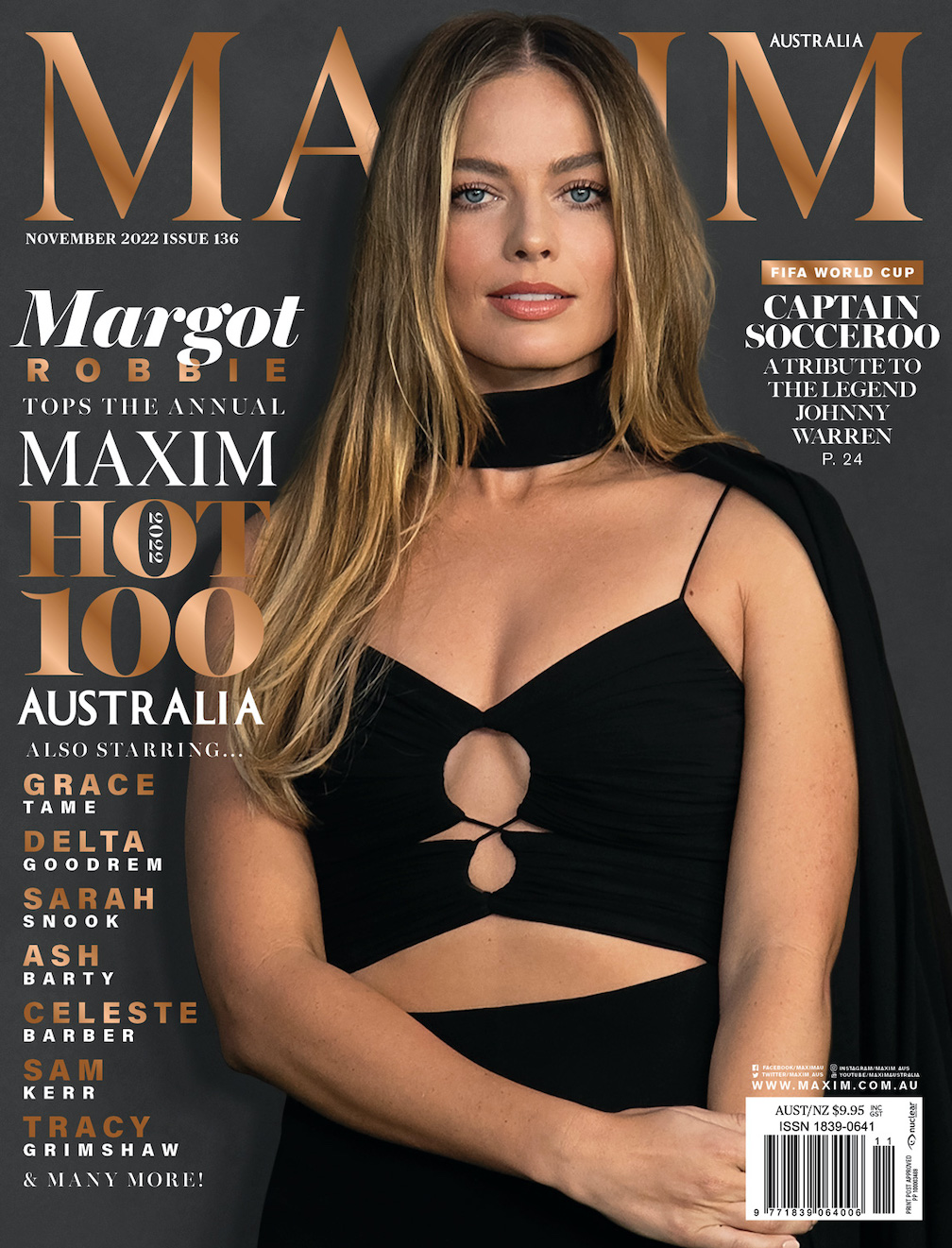Margot Robbie tops hot list for a record third time
- Written by The Women's Magazine

MAXIM Australia magazine has named Aussie actor Margot Robbie as the winner of the 2022 Maxim Hot 100 Australia for a record third time.
The past 12 months saw an abundance of Australian women who have wowed locally and internationally. None more so than this year’s winner, Margot Robbie, whose Hollywood star continues to shine brightly on the silver screen, and as a producer, as she fast becomes one of the most powerful women in entertainment.
MAXIM Editor-in-Chief, Santi Pintado said: Add endorsements, ambassador roles, beauty and brains to the mix and she’s the complete package. This also marks Margot’s third time topping the annual MAXIM HOT 100, which now officially makes her the first person in its history to achieve this unique hat-trick.
“This year the definitive list of Australia’s most influential, successful, powerful, newsworthy, talented and beautiful women features an eclectic mix of high-profile names from Margot Robbie, Sam Kerr, Grace Tame, Ash Barty, Sarah Snook, Sophie Monk, Tracy Grimshaw and many more," he said.
"Our 2022 HOT 100 list continues to celebrate the outstanding women who, this year, have influenced, impressed or impacted us with their aptitude, intellect, humour, headlines, sassiness and overall mega-talents.
“From athletes to actresses, comediennes to TV stars, musicians to politicians and news presenters to models and influencers, the list covers a fantastically diverse field that won’t disappoint our loyal followers and all Australians alike.”
The MAXIM HOT 100 began in the US edition in 2000. This is the 11th year MAXIM Australia has published its list, which is presented in a special edition flip cover featuring the 100 most influential women in Australia.
Here's the full list:
100. Dani Laidley
99. Annastacia Palaszczuk
98. Flick & Gabby
97. Penny Wong
96. Jody Haydon
95. Tracy Grimshaw
94. Heather McCartney
93. Karen staff
92. Natalie Barr
91. Allison Langdon
90. Sandra Sully
89. Olivia Vivian
88. The New Wiggles
87. Rybka Twins
86. Kylie Minogue
85. Jackie O
84. Kitty Flanagan
83. Julia Morris
82. Zoe Foster Blake
81. Celia Pacquola
80. Rachael Haynes
79. Bindi Irwin
78. Shayna Jack
77. Zara Mcdonald & Michelle Andrews
76. Ariarne Lepine
75. Sonia Kruger
74. Erin Molan
73. Ricki-Lee
72. The Veronicas
71. Robyn Lawley
70. Kate Ritchie
69. Jayde Heiser
68. Carrie Bickmore
67. Georgie Tunny
66. Emily Bates
65. Millie Boyle
64. Miah Madden
63. Kayla Itsines
62. Havana Brown
61. Stephanie Gilmore
60. Chantelle Otten
59. Isla Fisher
58. Tori Wade
57. Alexa Towersey
56. Hannah Balanay
55. Emily Sears
54. Ruby Rose
53. Milly Alcock
52. Olivia Dejonge
51. Natasha Bassett
50. Markella Kavenagh
49. Cate Blanchett
48. Nicole Kidman
47. Married At First Sight cast
46. Liz Watson
45. Ashton Wood
44. Sports presenters
43. Celeste Barber
42. Lauren Jackson
41. Chrissie Swan
40. Amanda Keller
39. Jessica Ferguson
38. Gabby Epstein
37. Ellie Gonsalves
36. G Flip
35. Jessica Gomes
34. Jennifer Hawkins
33. Miranda Kerr
32. Ellyse Perry
31. Melissa Leong
30. Rose Byrne
29. Jessica Mauboy
28. Elisha & Renee Herbert
27. Elizabeth Debicki
26. Rebel Wilson
25. Madison de Rozario
24. Casey Boonstra
23. Samara Weaving
22. Sarah Magusara
21. Costeen Hatzi
20. Minjee Lee
19. Paris Raine
18. Monique Riley
17. Jakara Anthony
16. Neighbours cast
15. Natalie Roser
14. Tina Rahimi
13. Sophie Monk
12. Brittany Higgins
11. Ellie Cole
10. Abbie Chatfield
09. Delta Goodrem
08. Duckie Thot
07. Ariarne Titmus
06. Sarah Snook
05. Grace Tame
04. Emma Mckeon
03. Ash Barty
02. Sam Kerr
01. Margot Robbie










